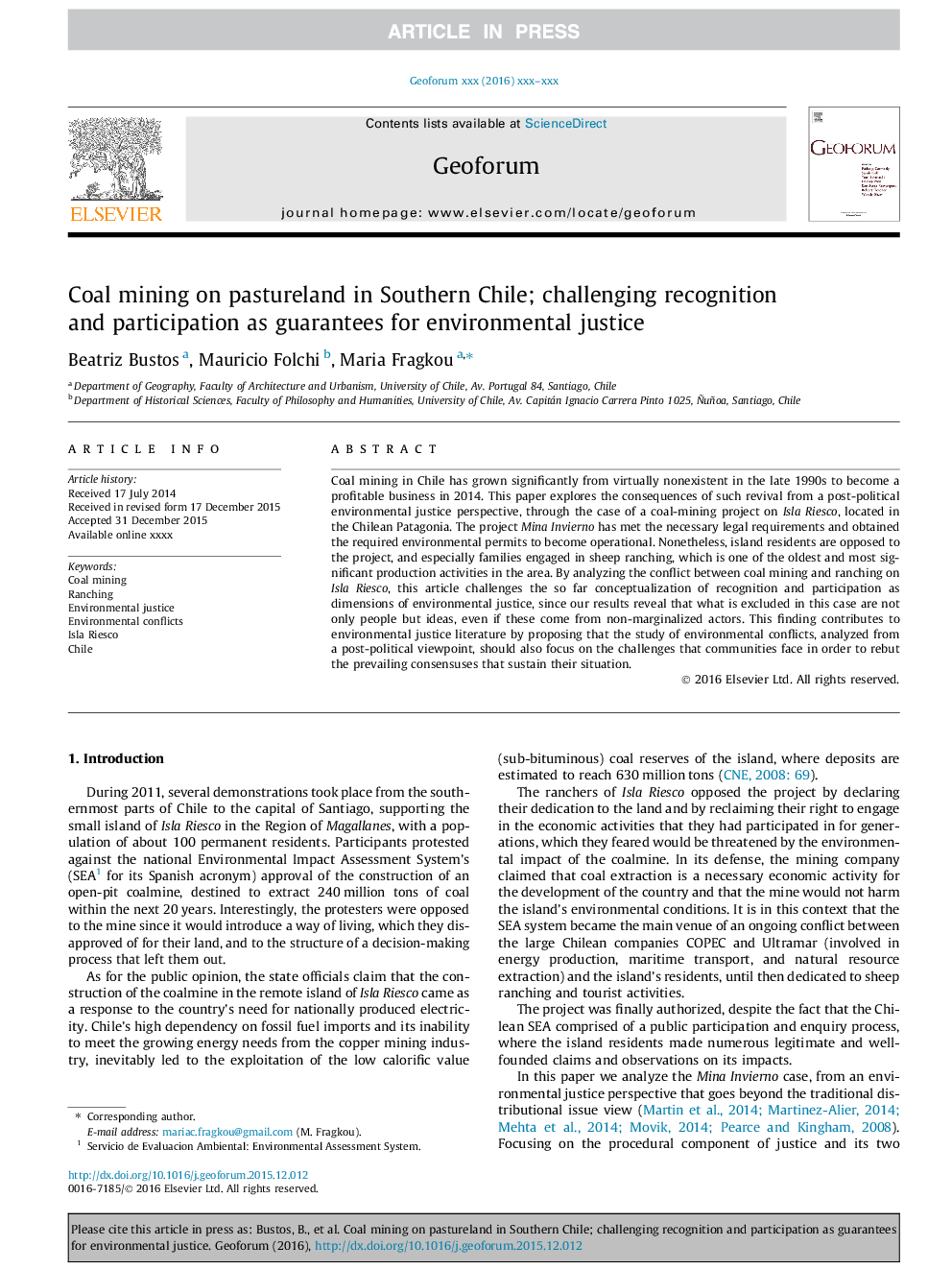| Article ID | Journal | Published Year | Pages | File Type |
|---|---|---|---|---|
| 5073302 | Geoforum | 2017 | 13 Pages |
Abstract
Coal mining in Chile has grown significantly from virtually nonexistent in the late 1990s to become a profitable business in 2014. This paper explores the consequences of such revival from a post-political environmental justice perspective, through the case of a coal-mining project on Isla Riesco, located in the Chilean Patagonia. The project Mina Invierno has met the necessary legal requirements and obtained the required environmental permits to become operational. Nonetheless, island residents are opposed to the project, and especially families engaged in sheep ranching, which is one of the oldest and most significant production activities in the area. By analyzing the conflict between coal mining and ranching on Isla Riesco, this article challenges the so far conceptualization of recognition and participation as dimensions of environmental justice, since our results reveal that what is excluded in this case are not only people but ideas, even if these come from non-marginalized actors. This finding contributes to environmental justice literature by proposing that the study of environmental conflicts, analyzed from a post-political viewpoint, should also focus on the challenges that communities face in order to rebut the prevailing consensuses that sustain their situation.
Related Topics
Social Sciences and Humanities
Economics, Econometrics and Finance
Economics and Econometrics
Authors
Beatriz Bustos, Mauricio Folchi, Maria Fragkou,
